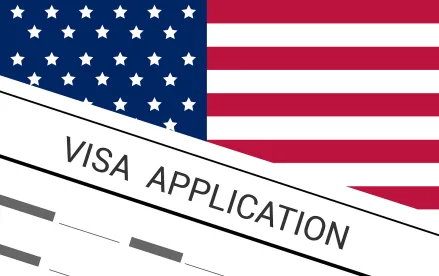On May 1, 2023, the U.S. Department of State (DOS) updated four provisions of the Foreign Affairs Manual (FAM) relating to E visas. The updates relate to E-2 substantiality; E company registration; E-3 intention to depart; and the treatment of spouses and children of E visa applicants. These changes are described more fully below:
1. Substantiality – The substantiality change at 9 FAM 402.9-6(D) instructs consular officers that once the sums invested are determined to be substantial, the E visa applicant does not need to be evaluated on that criteria going forward.
2. E Company Registration – The modified language relating to E company registrations (9 FAM 402.9-7(D)) clarifies best practices for posts that administer an E company registration program. The guidance instructs officers on criteria to apply in assessing whether an E company registration is in good standing, including consideration of the number of E employees and review of E company eligibility every five years. DOS instructs consular officers that the five-year review may be difficult at posts handling large numbers of E visa petitions, and the absence of such a review should not be the sole grounds for terminating E company status.
3. Intent to Depart – In 9 FAM 402.9-8(G), which relates to E-3 visas for Australian citizens, DOS added a paragraph stating:
“An E visa applicant is presumed to be an immigrant until the applicant establishes to your satisfaction that they are entitled to E nonimmigrant status. The standards for applying INA 214(b) described in 9 FAM 302.1-2(B) apply to E visa applicants.”
This added information to the “intent to depart” provision for this visa category appears to indicate that all E-3 visa applicants have immigrant intent unless they prove otherwise.
4. Spouses and Children of E Visa Applicants – The modified language at 9 FAM 402.9-9 distinguishes between the treatment of derivatives from E Treaty countries and those from non-Treaty countries, instructing the officer to apply the reciprocity standards applicable to the nationality of the specific visa applicant (i.e., the derivative) rather than the principal, except in instances in which the derivative’s nationality does not have an E Treaty.
Previously, the FAM said, “The spouse and children of an E visa applicant receive the same visa validity and number of entries and are required to pay the same reciprocity fee, if applicable, as the principal applicant.” The FAM notes that the spouse and/or children who are nationals of countries with an E treaty agreement are issued visas valid for the maximum validity authorized by the reciprocity schedule of their nationality OR for the length of the principal’s visa, whichever is shorter.



 />i
/>i

